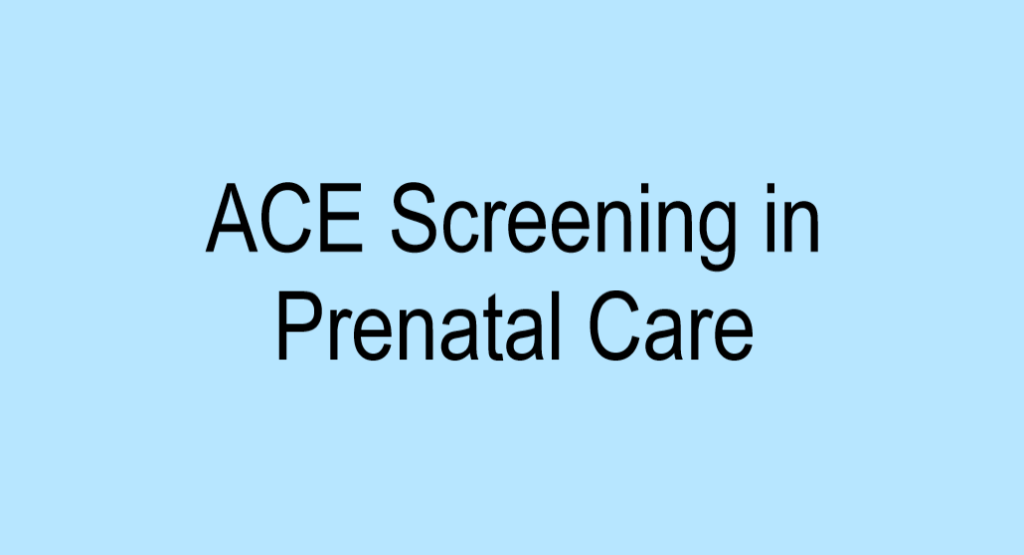Tracy Flanagan, Amy Alabaster, Brigid McCaw, Nicole Stoller, Carey Watson, and Kelly C. Young-Wolff
Published Online: 1 Jul 2018
Abstract
Introduction: Adverse childhood experiences (ACEs) are common among pregnant women and contribute to increased risk for negative perinatal outcomes, yet few clinicians screen prenatal patients for ACEs. The purpose of this study was to evaluate the feasibility and acceptability of screening for ACEs in standard prenatal care.
Methods: We evaluated a 4-month pilot (March 2016–June 2016) to screen pregnant women (at ∼14–23 weeks of gestation) for ACEs and resiliency in two Kaiser Permanente Northern California medical centers (N = 480). We examined the acceptability of the screening to patients through telephone surveys (N = 210) and to clinicians through surveys and focus groups (N = 26).
Results: Most eligible patients (78%) were screened. Patients who received the screening were significantly more likely to be non-Hispanic White, Asian, or of “Other” or “Unknown” race/ethnicity than African American or Hispanic race/ethnicity (p = 0.02). Among those screened, 88% completed the questionnaires; 54% reported 0 ACEs, 28% reported 1–2 ACEs, and 18% reported ≥3 ACEs. Most patients were somewhat or very comfortable completing the questionnaires (91%) and discussing ACEs with their clinician (93%), and strongly or somewhat strongly agreed that clinicians should ask their prenatal patients about ACEs (85%). Clinicians reported significant pre- to postpilot increases in comfort discussing ACEs, providing education, and offering resources (ps < 0.01). Clinicians’ willingness to screen for ACEs was contingent on adequate training, streamlined workflows, inclusion of resilience screening, and availability of mental health, parenting, and social work resources.
Conclusion: ACEs screening as part of standard prenatal care is feasible and generally acceptable to patients. Women’s health clinicians are willing to screen patients for ACEs when appropriately trained and adequate behavioral health referral resources are available.
